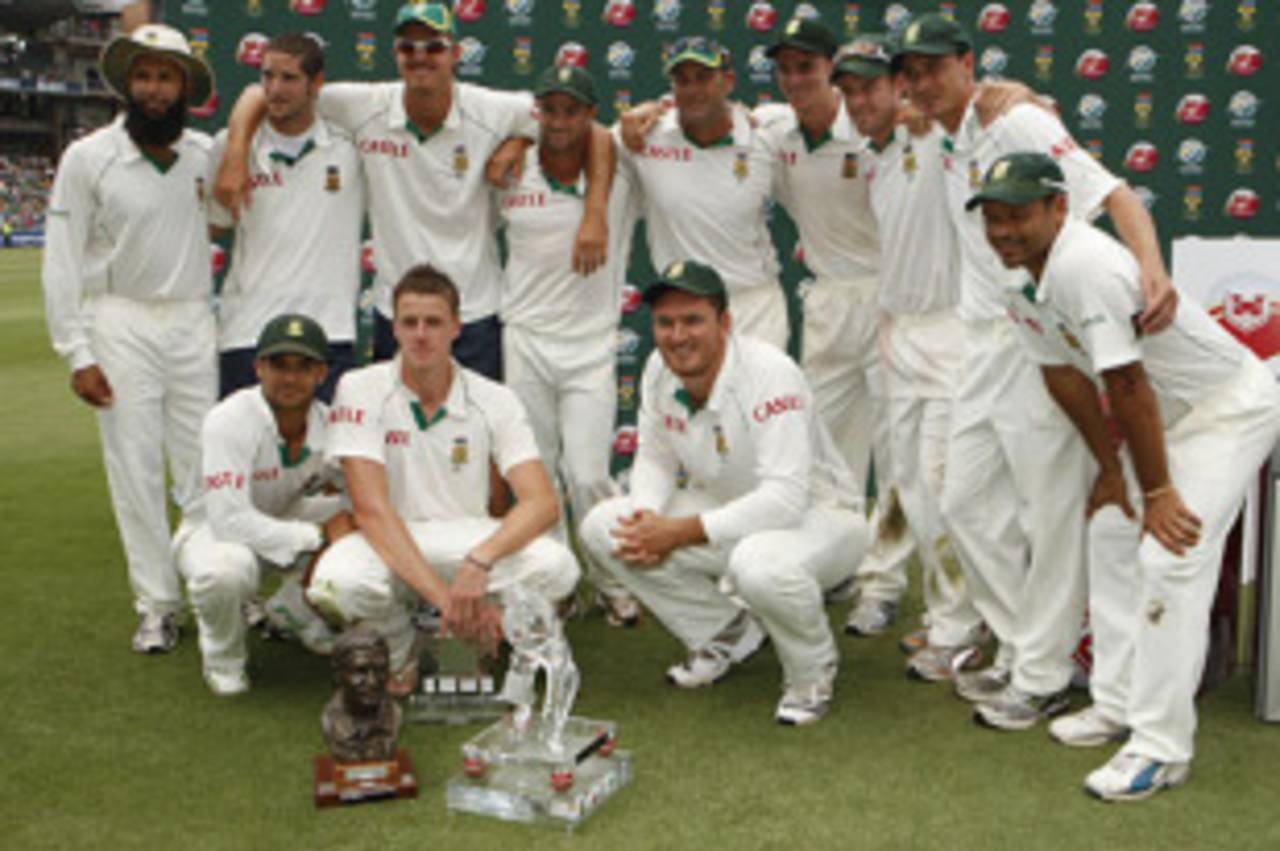History suggested it was going to be a tight series, and in the end 1-1 felt like the right result. You can understand why South Africa felt they should have won, maybe by as much as three Tests to one, but England's resilience played such a part in making it a memorable contest that a share of spoils is fair.
It is a shame that controversy over the review system enveloped the final Test, but as with the ball-tampering saga at Newlands, high-quality cricket ensured the on-field action was never completely overshadowed. Throughout the four Tests there was barely a passage of play that failed to grab the attention, and with series like this the five-day game shouldn't be in danger.
That, of course, remains in the hands of the administrators but, whatever format they come up with for the future structure of Test cricket, it is imperative to ensure that the top teams compete against each other regularly and over long enough series for the full narratives of the game to emerge. It's a blessing that South Africa are now playing two Tests in India, but the BCCI only added those after their team became No. 1 in the world. That series will have just got going, and then it will end.
"The last ten Tests we have played have been against top Test nations and it's been competitive," Graeme Smith said. "That's what people want to watch and if you have top teams playing each other it's going to ebb and flow. It's a credit to both teams how the series has been played and it has been great for the game."
To watch Graeme Swann, an offspinner, play such a key role in the series showed an old art-form is very much alive, while the sight of two quick bowlers, Dale Steyn and Morne Morkel, making batsmen hop around was a highlight of the series. That had a lot to do with the Wanderers' pitch which certainly wasn't a minefield, as some had predicted, but was just a sporting Test surface. More of them, please.
"It was a good Test wicket, it offered everyone something," Smith said. "It spun, it had pace and bounce for the seamers and good batters got runs. I don't think it played nearly as badly as it was built up to be before the game. It was nice to have a wicket that didn't fade away towards the back end of the game."
Both teams ended the series with feelings of what might have been. Smith wasn't shy at saying his team could have won 3-1 if they'd managed to twice dismiss England's No. 11 Graham Onions, while Strauss was left to ponder a missed opportunity to add a huge feather to his cap.
The battle ended how many people expected it to be from the outset with South Africa's strong batting outperforming England's inconsistent top order and the home side's pace attack proving too hot to handle. However, England provided some of the most unexpected elements of the series. Swann ended as the leading wicket-taker in a country where spin has rarely excelled, Paul Collingwood continued his resurgence, Ian Bell found a backbone and Onions twice fought off final overs.
"It's been a great tour to be on," Andrew Strauss said. "The players have applied themselves exceptionally well; the work ethic has been good; it's been fun and we've got a lot of good memories to go home with."
Memories, but no Basil D'Oliveira trophy. That stays with South Africa who showed signs of emerging from their 2009 slump at the start of the new decade. Makhaya Ntini's career appears to be over - although no-one is quite willing to make the final call just yet - but in Wayne Parnell they have one the most exciting young talents in the world.
Still, there is no one around to replace Ntini's cultural significance in the team, and that's a worry in these parts. However, there are also other issues to solve. They need to find an opening partner for the immense Smith, JP Duminy's star has fallen from its early exalted heights, and they don't have a match-winning spinner. South Africa's next challenge comes in India, against the team who took their top ranking, and that will provide a tough examination of their squad depth.
"It's a whole new world touring India. Not many teams go there and prove to be successful," Smith said. "Last time we were there we drew the series 1-1 and we've got a few challenges going into those conditions to perform well. A good aggressive mindset going into India is always crucial. We'll prepare well, but it's been quite a heavy summer so it's important that the guys recover then we can switch on for India."
For England it's a couple of weeks off then the one-day squad leaves for Dubai and onward to Bangladesh before a Test series in March. It won't be a full-strength party, but they need to be aware of taking their opponents lightly. Bangladesh have just served notice by making life tough for India's awesome batting line-up. England, despite sharing a series they were expected to lose, are not in a position to take anything for granted.
And here's one final thought. Under an agreement signed in 2008, England-South Africa series were meant to be guaranteed a five-match 'icon' status. The packed international calendar and other commitments for both teams precluded that, but imagine if next week the road show had moved on for a decider. Now that would have been a humdinger.
Cricinfo composite XI 1 Graeme Smith (capt), 2 Alastair Cook, 3 Hashim Amla, 4 Jacques Kallis, 5 Paul Collingwood, 6 Ian Bell, 7 Mark Boucher (wk), 8 Stuart Broad, 9 Graeme Swann, 10 Dale Steyn, 11 Morne Morkel.
Andrew McGlashan is assistant editor of Cricinfo
